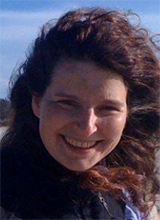I am a developmental psychologist with additional training and expertise in quantitative methods. I am an associate professor in the UW Department of Psychiatry and Behavioral Sciences, a core member of the Center for the Study of Health and Risk Behaviors (CSHRB), faculty affiliate of the Center for Studies in Demography and Ecology (CSDE), and adjunct faculty at the UW School of Social Work. My main collaborations at UW involve colleagues from CSHRB but I also maintain strong research collaborations with my colleagues from the Social Development Research Group (SDRG), School of Social Work, and other departments. In addition to research, I occasionally teach graduate-level classes on research methods and evaluation in social welfare (SOCW505, SOCW506, SOCW507) and research and theory (SOCWL599) at the School of Social Work. I am also actively involved in mentoring graduate students and postdoctoral fellows.
Personal Statement
I am a Professor of Psychiatry and Director of the Addictions Division in the Department of Psychiatry and Behavioral Sciences at the University of Washington School of Medicine in Seattle, Washington. I am also the clinical director of addictions treatment services at Harborview Medical Center, and work in the psychiatric rehabilitation and recovery services.
I am board-certified in Psychiatry by the American Board of Psychiatry and Neurology with Added Qualifications in Addiction Psychiatry, and the American Board of Addiction Medicine. A Distinguished Fellow of the American Psychiatric Association and a Fellow of the American Society of Addiction Medicine, I am on the editorial board and a reviewer for several scientific journals and holds a number of research grants from the National Institute of Health.

Personal Statement
I am an investigator in the Seattle-Denver Center of Innovation for Veteran-Centered and Value-Driven Care and Associate Director of the Seattle Center of Excellence in Substance Abuse Treatment and Education (CESATE), one of two national VA centers devoted to improving the quality of care and clinical outcomes of veterans with substance use conditions. I am also a licensed clinical psychologist in Washington State. My primary research interests include evaluating and improving behavioral health and substance use outcomes of Veterans with alcohol and/or drug misuse conditions. I received his PhD from Brigham Young University.
My primary research interests include evaluating and improving behavioral health and substance use outcomes of Veterans with alcohol and/or drug misuse conditions. Ongoing research interests include prevention of alcohol misuse among Veteran populations and development of a collaborative care management intervention for patients with complex, recurrent substance use disorders and high utilization of hospital services. Current projects include evaluating collaborative care management approaches for treating Veterans with complex and chronic substance use disorders, estimating the relative risks of serious adverse events among Veterans with PTSD who are prescribed opioids and benzodiazepines concurrently, evaluating clinical decision support interventions to reduce concurrent use of opioid and benzodiazepine medications among high-risk Veterans and validation of quality indicators for recognition and management of problematic alcohol use, and assessing the recognition and management of alcohol misuse among OEF/OIF Veterans with and without TBI.

Personal Statement
The overall goal of my research program is to use a multi-level approach, combining molecular biology, anatomy, genetics and behavioral neuroscience, to understand the role of cortico-basal ganglia circuitry in the development of behaviors that are associated with drug reward and addiction, as well as in the processes that underlie decision-making, motivation and impulsivity.
To accomplish these goals, my laboratory employs a novel chemical-genetic approach that uses viral vectors to express artificial, engineered G-protein coupled receptors (known as DREADD receptors) in discrete neuronal cell populations in rodents. Activation of DREADD receptors by the otherwise inert synthetic ligand clozapine-N-Oxide will lead to transient alterations in neuronal activity (either increasing or decreasing cell function depending on which G-protein coupled DREADD receptor is expressed) of the targeted cell populations. This neuronal modulation can be paired with specific phases of the behaviors that we study, including psychostimulant-induced behavioral sensitization, drug self-administration and operant learning tasks, in order to parse out the neural circuitry that contributes to behaviors associated with addiction and other neuropsychiatric disorders.

Personal Statement
I am a Professor and Licensed Clinical Psychologist in the University of Washington’s Department of Psychiatry and Behavioral Sciences and am Board Certified in Cognitive and Behavioral Psychology. I received my Ph.D. in clinical psychology from the UW in 2006 and returned to UW as a faculty member in 2010.
My research interests include problematic substance use (including alcohol and marijuana), posttraumatic stress disorder (PTSD), identity and self-concept, and resilience. My work focuses on investigating implicit (i.e., non-conscious or automatic) cognitive processes and processes related to self-concept and identity that contribute to the development and maintenance of maladaptive behavior and psychopathology. A second line of my work focuses on developing and increasing access to briefer, effective interventions for individuals who are trauma-exposed. Support for my work has been provided by the National Institute on Alcohol Abuse and Alcoholism, the National Institute on Drug Abuse, and the University of Washington’s Garvey Institute for Brain Health Solutions and the Addictions, Drug & Alcohol Institute. I also serve as a consultant for dissemination projects aimed at training community-based mental health workers in Cognitive Processing Therapy and other evidence-based treatment for PTSD in locally, nationally, and internationally.

Personal Statement
The transition to adulthood is the developmental period when alcohol use, marijuana use, and their associated consequences reach their lifetime peak. My scholarly interests focus on the etiology and prevention of substance use behaviors and consequences during adolescence and young/early adulthood. I have developed a highly successful portfolio of work bridging developmental, social, and motivational theory with applied prevention and intervention techniques to strategically address high-risk behaviors during the transition to adulthood.
My research addresses important questions regarding how recent marijuana legislation in Washington State impacts young adult marijuana use and consequences; what motivates young adults to engage in alcohol and marijuana use; how alcohol expectancies, alcohol use and consequences are linked in a natural feed-forward process that maintains high-risk behaviors; how developmental transitions and event timing influence use; and what are efficacious prevention and intervention strategies and for whom and under what conditions are these most effective.

Personal Statement
My primary interest is on determining how behavioral technologies can be used to improve alcohol and drug abuse outcomes for those suffering from addiction health disparities. Behavioral technologies are non-talk therapy approaches to addiction treatment, such as motivational incentives where we provide rewards for people who abstain from or reduce their drinking. This low-cost, strength based approach to addiction can be implemented in low-resources settings by non clinicians. In fact, our group is investigating how smartphones might be used to implement this treatment, allowing us to reach the millions of individuals suffering from alcohol problems worldwide.
My second research interest in evaluating the accuracy of alcohol biomarkers in addiction treatment settings. These include alcohol urine tests, such as ethyl glucuronide (EtG) and mobile phone linked Bluetooth breathalyzers. These tools allow us to accurately assess the success of alcohol treatments, as well as provide valuable research tools.
Importantly all of my research studies are conducted in collaboration with two communities that suffer disproportionately high rates of alcohol and drug misuse, 1) adults with severe mental illnesses, like schizophrenia and bipolar disorder and 2) American Indians and Alaska Natives. My research team and I work closely with community partners who are providing addiction treatment to these populations with the goal of reducing the burden of alcohol and drug use in these communities.

Personal Statement
I am a clinical psychologist with research interests in the treatment of alcohol and substance use disorders and co-occurring mental health conditions.
My research focuses on understanding how to improve access to evidence-based treatments and understanding why and how patients benefit from treatment. I am particularly interested in research measurement-based care — i.e., the use of standardized measures to monitor treatment progress and inform clinical decision-making.
Broad areas of interest include:
- Alcohol and drug use disorder treatment, including the effectiveness of digital and behavioral interventions, mechanisms of behavioral change, and social and environmental determinants of change.
- Technology to support behavioral change, including patient- and clinician-facing tools that support clinical decision-making, treatment adherence, and treatment progress monitoring.
- Applied statistical analysis, including methods for analyzing longitudinal data, clinical trials data, multilevel data, missing data, psychometric analysis, and data visualization.










